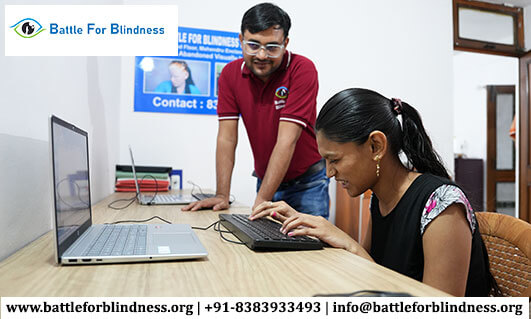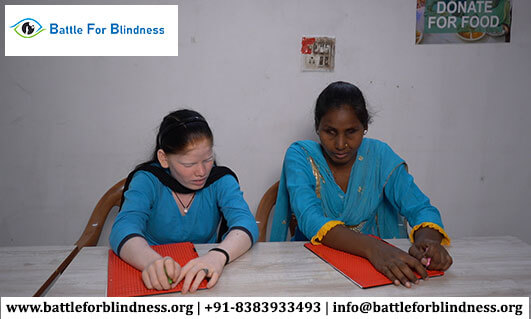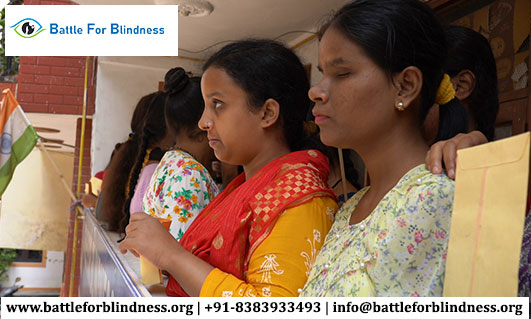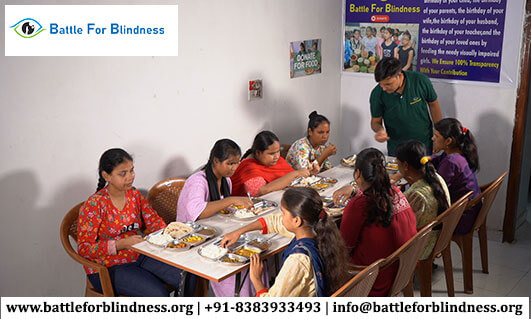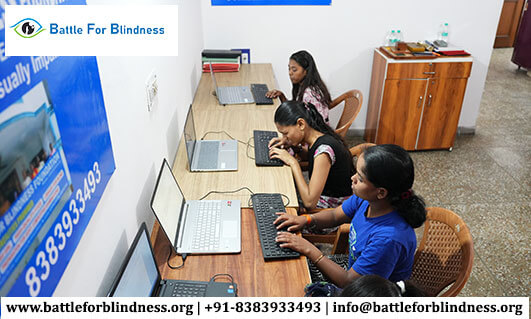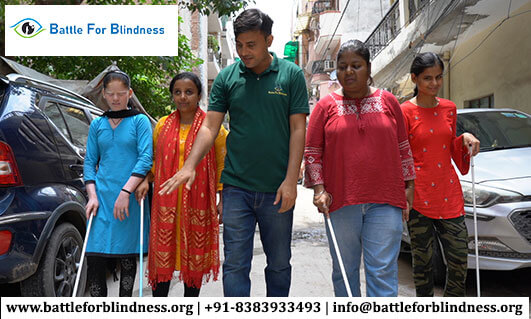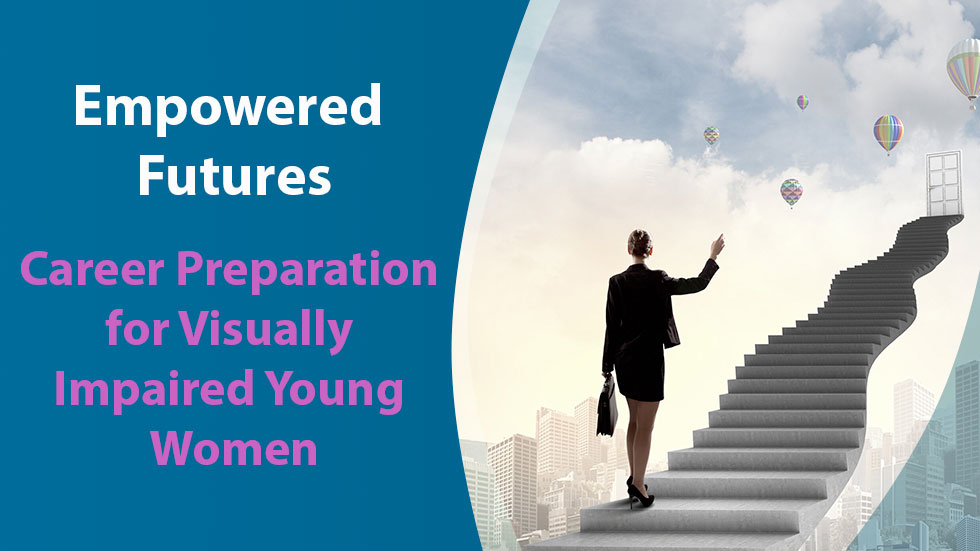
Every girl, regardless of her abilities, deserves the opportunity to dream big and pursue a successful career. For visually impaired girls, the journey to career success may involve unique challenges, but it also offers countless possibilities. With the right tools, support, and mindset, visually impaired girls can break barriers and excel in a wide range of fields, from technology and business to the arts and sciences.
This blog focuses on empowering visually impaired girls by providing them with the knowledge, skills, and resources necessary to pursue their career aspirations. It highlights the importance of confidence, mentorship, accessibility, and tailored opportunities to help them achieve their dreams.
1. Building Confidence and Self-Belief
Confidence is a crucial foundation for success in any career, and for visually impaired girls, cultivating this self-assurance is key. Confidence comes from understanding one’s strengths, setting achievable goals, and developing the resilience to overcome challenges. Encouraging girls to take part in extracurricular activities, volunteer work, and internships can help build their self-esteem while giving them real-world experience.
- Action Steps: Encourage participation in activities that promote independence, such as leadership programs, public speaking, and workshops. Celebrate small wins to build confidence and show them that no goal is too big to achieve.
2. Mentorship and Role Models: Learning from the Best
Mentorship plays a vital role in career development, offering guidance, wisdom, and emotional support. For visually impaired girls, having a mentor who has navigated the challenges of the workforce can be especially empowering. Role models—successful professionals with disabilities—serve as inspirations, demonstrating that no obstacle is insurmountable.
- Action Steps: Help connect visually impaired girls with mentors through mentorship programs, online communities, and advocacy groups. Encourage networking opportunities where they can engage with professionals in their chosen fields.
3. Leveraging Technology for Career Growth
Technology has revolutionized how visually impaired individuals access education, work, and networking opportunities. Tools like screen readers, voice recognition software, and specialized apps for note-taking and time management can level the playing field and help visually impaired girls thrive in various industries. Additionally, online learning platforms provide opportunities to acquire new skills, certifications, and degrees, making career development more accessible than ever.
- Action Steps: Introduce visually impaired girls to accessible technologies that can assist them in their studies and future careers. Provide training on the use of screen readers, braille displays, and productivity apps that will enhance their efficiency and independence.
4. Exploring Career Paths: From STEM to the Arts
Visually impaired girls have the potential to excel in a wide array of fields, including science, technology, engineering, mathematics (STEM), business, law, education, media, and the arts. By breaking stereotypes and providing them with the right tools, these girls can make groundbreaking contributions in any field of their choice.
-
STEM Fields: Many visually impaired girls are excelling in tech-related careers such as coding, data analysis, and research. They can take advantage of accessible coding tools and platforms that support braille and screen readers.
-
The Arts: From music to painting, writing, and acting, the arts offer a platform for creativity and self-expression. Encouraging visually impaired girls to pursue their artistic interests can lead to fulfilling careers that bring both personal and societal fulfillment.
-
Action Steps: Provide access to career fairs, job shadowing opportunities, and internships in various industries. Encourage exploring diverse fields through research, volunteering, and skill-building programs.
5. Educational Support and Accessibility
A strong education forms the foundation of any career. For visually impaired girls, educational institutions that provide accessible learning environments, specialized resources, and inclusive curricula are essential. Braille materials, screen reader compatibility, and adaptive technologies ensure that girls have the tools they need to succeed in their studies and later in their careers.
- Action Steps: Advocate for inclusive education policies that promote accessibility in classrooms. Encourage participation in specialized training programs, workshops, and skills development that cater specifically to visually impaired students.
6. Networking and Professional Development
Networking is an invaluable tool for career growth. By connecting with professionals in their chosen fields, visually impaired girls can discover new career opportunities, gain insights, and build lasting relationships. Networking can take place in person at conferences, seminars, and job fairs, as well as through virtual platforms that support accessibility for those with visual impairments.
- Action Steps: Encourage participation in online professional communities, disability advocacy groups, and job fairs that focus on inclusion. Show them how to use social media platforms like LinkedIn to connect with potential employers and mentors.
7. Workplace Accommodations and Advocacy
An inclusive and supportive workplace is vital for the success of any employee, but it’s especially important for visually impaired girls. Advocacy for reasonable accommodations, such as flexible working hours, accessible technologies, or modified office layouts, can make a huge difference in their professional lives. Encouraging girls to speak up about their needs and seek out inclusive employers is essential for their long-term success.
- Action Steps: Support girls in advocating for themselves in job interviews and the workplace by teaching them how to request accommodations confidently. Help them identify employers who have a strong commitment to accessibility and inclusion.
8. Overcoming Challenges and Staying Resilient
Every career journey is filled with challenges, but resilience—the ability to bounce back from setbacks—is essential for success. Visually impaired girls may face obstacles such as accessibility barriers, societal biases, or a lack of representation in certain industries. However, by focusing on their strengths, maintaining a positive attitude, and developing problem-solving skills, they can navigate these challenges with determination.
- Action Steps: Encourage girls to set small, achievable goals and maintain a growth mindset. Provide emotional and psychological support during difficult times, helping them reframe setbacks as opportunities for learning and growth.
Conclusion
The career dreams of visually impaired girls should be limitless. With the right support, resources, and mindset, they can pursue any career path they choose. By fostering confidence, providing mentorship, leveraging technology, and advocating for accessibility, we can help visually impaired girls turn their dreams into reality. It is important to celebrate their accomplishments and empower them to push beyond boundaries—because the future holds endless possibilities for those who dare to dream.
